Prebiotics, Probiotics, and Postbiotics: How do they work?
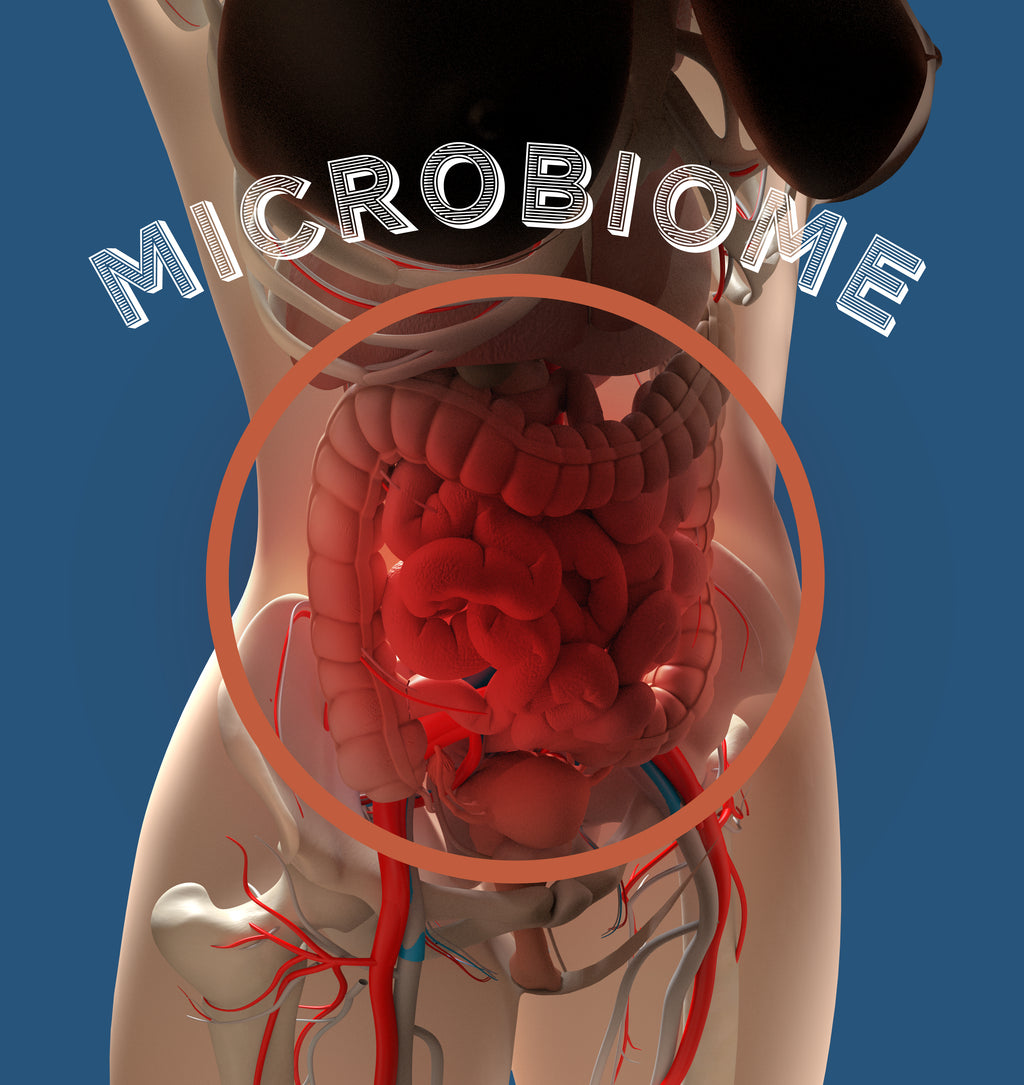
Many people have heard of probiotics, and how they are good for the gut. Some people have heard of the microbiome, and how it's a description of your inner ecosystem that determines gut, and therefore body health. If you've been reading these blogs you certainly have! Fewer people have heard of prebiotics and postbiotics, and how they fit in with probiotics, and how they impact gut health. Let's take a look at how these things work together, and why it's so important to both take a good probiotic and feed those helpful gut bugs.
- The microbiome is the collection of all microbes, such as bacteria, fungi, viruses, and their genes, that naturally live on our bodies and inside us. These microbes contribute in big ways to human health and wellness. They protect us against pathogens, help our immune system develop, and enable us to digest food to produce energy1.
- Gut dysbiosis occurs when the pathogenic bacteria in your gut microbiome outweigh and outnumber the beneficial bacteria. This can lead to several physical, emotional, and mental symptoms. Eventually, dysbiosis can lead to more serious health issues2.
- Prebiotics are a group of nutrients, mainly fiber, that feed the beneficial bacteria in your gut. Probiotics are the healthy, or “friendly,” bacteria that live inside your gut and support your health by converting fiber into compounds that have benefits for your health. Postbiotics are the bioactive compounds the probiotic bacteria produce when they consume prebiotics (fiber)3.
- Taking prebiotic and postbiotic supplements can help heal an unbalanced microbiome and leaky gut by providing support for your microbiome to thrive. This may help provide you with the support you need to be a healthy and thriving human4.
A person’s core microbiome is formed in the first years of life but can change over time in response to different factors including diet, medications, and environmental exposures. Differences in the microbiome may lead to different health effects from environmental exposures and may also help determine individual susceptibility to certain illnesses2.
Taking care of your microbiome involves exposing yourself to plenty of good bacteria and eating foods that help your bacteria thrive. Some ways to take care of your microbiome include eating plenty of vegetables, fruits, and whole grains; eating fermented foods; taking a pharmaceutical-grade probiotic supplement; limiting sugar and refined carbs; using regular soap instead of antibacterial; and gardening can all help by both exposing you to a variety of useful bacteria and limiting the kill-off of them.
Prebiotics are specialized plant fibers that act like fertilizers to stimulate the growth of healthy bacteria in the gut. They are found in many fruits and vegetables, especially those that contain complex carbohydrates, such as fiber and resistant starch. These carbs aren’t digestible by your body, so they pass through the digestive system to become food for bacteria and other microbes1. This is why it's essential to get enough fiber in your diet each day. Without the prebiotic effect of fiber, your good intestinal flora doesn't get fed enough, starts to die off, and is replaced by the bad flora that causes dysbiosis. If you can't get enough fiber in your diet naturally, there are prebiotic supplements available that can help, as well as excellent powder preparations that can be mixed with water or into smoothies that contain protein as well, and no sugar.
Prebiotics help probiotics to function by providing them with the food they need to grow and flourish. By nourishing a balance among the nearly 1,000 different species of bacteria in your gut, prebiotics help ensure that your microbiome works to the best of its ability
Postbiotics are bioactive compounds made when the healthy bacteria in your gut, known as probiotic bacteria, feed on various types of prebiotic food in your colon, such as fibers. Although these bioactive compounds are considered the waste products of probiotic bacteria, they offer various health benefits to your body1.
Postbiotics include nutrients such as vitamins B and K, amino acids, and substances called antimicrobial peptides that help to slow down the growth of harmful bacteria. Other postbiotic substances called short-chain fatty acids help healthy bacteria flourish2.
Postbiotics are important for the gut to function well because they help maintain a healthy balance of beneficial bacteria and other microorganisms in your gut microbiome. This can support your immune system, brain health, and digestive health1.
Those postbiotics won't appear in the amounts they should without a healthy microbiome. A healthy microbiome, with enough good gut flora, is necessary to have regular digestive and eliminative functions, but those functions affect the health of the whole body. When your gut goes awry, it's called dysbiosis, and it can have some nasty consequences.
The microbiome consists of microbes that are both helpful and potentially harmful. Most are symbiotic (where both the human body and microbiota benefit) and some, in smaller numbers, are pathogenic (promoting disease). In a healthy body, pathogenic and symbiotic microbiota coexist without problems. But if there is a disturbance in that balance, dysbiosis occurs, stopping these normal interactions. As a result, the body may become more susceptible to disease1.
Gut dysbiosis can cause more severe problems elsewhere in the body because your gut health is closely linked to many other bodily functions. For example, dysbiosis can contribute to illnesses such as anxiety and depression, lupus, MS, leaky gut, and diabetes1. Symptoms of dysbiosis include chronic fatigue, digestive problems, trouble urinating, acid reflux or heartburn, vaginal or rectal infections or itching, food intolerance, gas and bloating, inflammation and aching joints, acne, skin rashes, and psoriasis2.
There are several ways to treat gut dysbiosis and heal the microbiome. Some gut dysbiosis prevention methods include eating an overall healthy and clean diet, avoiding alcohol or extremely limiting your intake, and avoiding antibiotics and other drugs like proton-pump inhibitors, antacids, and non-steroidal anti-inflammatory drugs (NSAIDs)1.
Some studies show that taking probiotic and prebiotic supplements can help heal gut dysbiosis. Reports have indicated that dietary interventions involving prebiotics, probiotics, omega-3 fatty acids, and butyrate supplementation can alleviate antibiotic-induced gut dysbiosis and barrier injuries1. We've already talked about available prebiotics as supplements, Omega-3 fatty acids not only can help the gut but there is excellent research on how they aid in cardiovascular health among other things. Omega-3s are also easy to supplement. Butyrate is one of the postbiotic compounds produced by a healthy microbiome. It is possible to supplement with this compound as well, but many patients say it has a flavor so bad they literally can't stomach it.
Probiotics are live microorganisms that can help restore the balance of good bacteria in the gut. They work by competing with harmful bacteria for nutrients and space, producing substances that inhibit the growth of harmful bacteria, and stimulating the immune system to fight off harmful bacteria. A pharmaceutical-grade probiotic supplement is a probiotic that has been manufactured according to pharmaceutical standards. This means that it has been produced under strict quality control conditions and contains a verifiable number of live bacteria of a strain that has been shown to be beneficial to human health1.
Progressive Nutracare offers a number of probiotic supplements, and all of them meet the above criteria. Here is what we suggest with some details to help you choose:
1) Progressive Probiotic Our go-to daily probiotic in capsule form. Featuring a seven-strain active organism probiotic for daily maintenance totaling 20 billion CFU. 30 count or 60 count.
2) Progressive Organic Probiotic Featuring a unique blend of Organic Shiitake Mushroom, Organic Turmeric and hearty SBO’s, this formula is a convenient once daily Probiotic. Probiotic and Prebiotic Blend: Organic Shiitake Mushroom Extract, Organic Turmeric Root Extract, Bacillus coagulans, Bacillus subtilis. 8 Billion Total CFU* + Prebiotics: 7 Billion CFU* Bacillus coagulans and 1 Billion CFU* Bacillus subtilis.
3) Progressive Organic Women's Probiotic Designed specifically for the female body, this unique formulation features a clinically studied Ayurvedic herbal blend that works to help support a healthy immune system and digestive function, reduce occasional constipation, help to maintain healthy gut microflora, and more. 8 Billion Total CFU* + Organic Chaste Tree (Vitex), 7 Billion CFU* Bacillus coagulans, 1 Billion CFU* Bacillus subtilis. Convenient once-daily formula.
4) PROBIOTIC 100 A four-strain probiotic totaling 100 billion CFU, taken once a day. For when you have some noticeable gut disturbance and want something with a higher load of healthy flora.
5) PROBIOTIC 225 A six-strain probiotic totaling 225 billion CFU providing intensive high-concentration probiotic support, for when you need a little more to right your gut than the previous listings.
6) PROBIOTIC COMPLETE 350 A high-potency multi-strain 350 billion CFU probiotic for therapeutic GI support for patients with significant GI and immune Issues.
7) PROGRESSIVE PROBIOTIC INFANTS A high-potency, hypoallergenic blend of supplements designed to safely meet the metabolic and intestinal support needs of infants up to the age of 2 years. This supplement can be safely metabolized by infants. designed to support a normal infant microbiota that can be easily disrupted by cesarean section delivery, formula feedings, antibiotics, toxin exposures, and a maternal diet lacking in fresh fruits and vegetables.
8) Progressive Children's Probiotic Children's Probiotic was formulated to meet the digestive needs of children ages 5-15 years it contains 8 strains of friendly bacteria with 4 billion viable cells per capsule designed to reflect normal healthy childhood microflora. It supports the development of flora in the small and large intestines. In powdered form. Also available as a chewable.
9) Progressive Probiotic Maintenance Pro-biotic Maintenance is a combination of probiotic bacteria that supports the immune and gastrointestinal systems. It is formulated with five billion live organisms per capsule and combined with selenium and zinc for those who would like the immune-boosting capabilities of those elements as well.
10) Progressive G.I. 5 is a high-potency, hypoallergenic blend of five probiotic strains, G.I. 5 is designed for individuals who need a high degree of support to build and balance beneficial intestinal flora. The five strains in this formulation: Lactobacillus rhamnosus, Lactobacillus acidophilus, Bifidobacterium bifidum, Streptococcus thermophilus, and Lactobacillus bulgaricus work together to effectively increase colonization of the microorganisms in both the small intestine and the colon. The transient and colonizing strains in this combination have a high tolerance to stomach acid and bile, which is important for maintaining viability in the intestinal environment. G.I. 5 is an excellent, cost-effective option for supplementation with potent amounts of primary, broad-acting resident probiotic strains complemented by two non-resident strains that compete against less desirable bacteria and yeast.
As you can see, there are probiotics to fit a range of patients. You can always switch to a more or less organism-populated blend, or try one with different strains or added ingredients. Together, probiotics and prebiotics can help restore balance to an unbalanced microbiome by promoting the growth of beneficial bacteria and inhibiting the growth of harmful bacteria. In addition to these Progressive products, Nutracare also carries a variety of other supplements That act as prebiotics, probiotics, and stimulate postbiotics. Check out our store!
- Tags: Article Gastrointestinal
- Robert Thomas

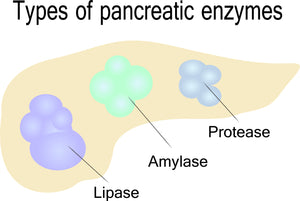

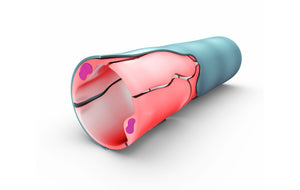
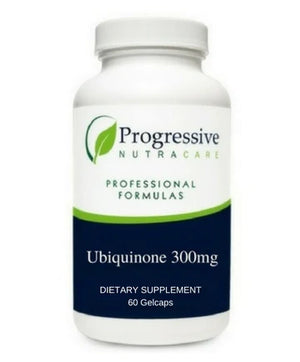

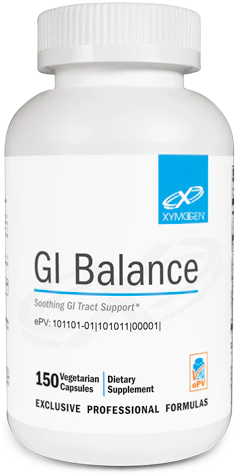
Comments 0